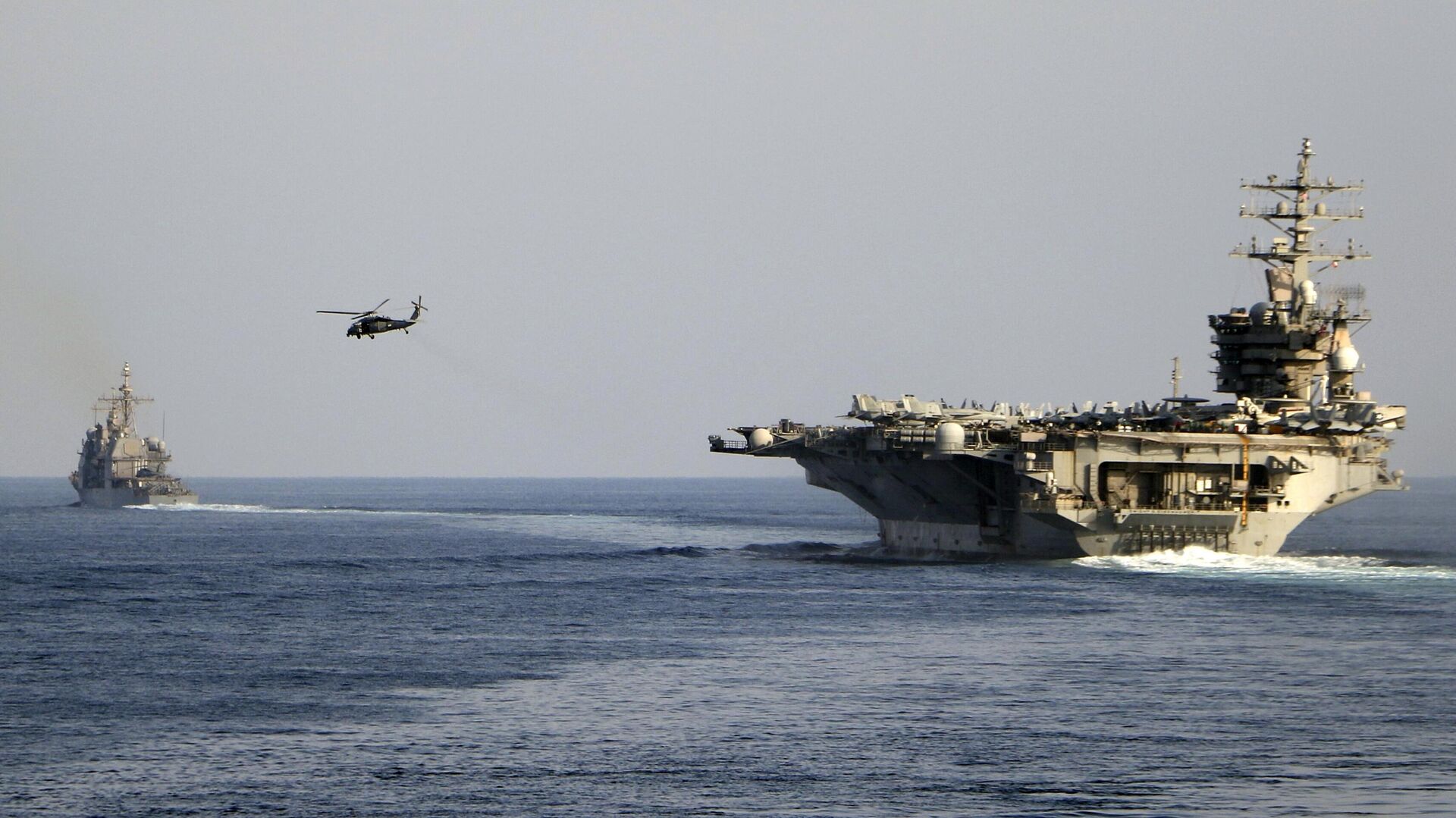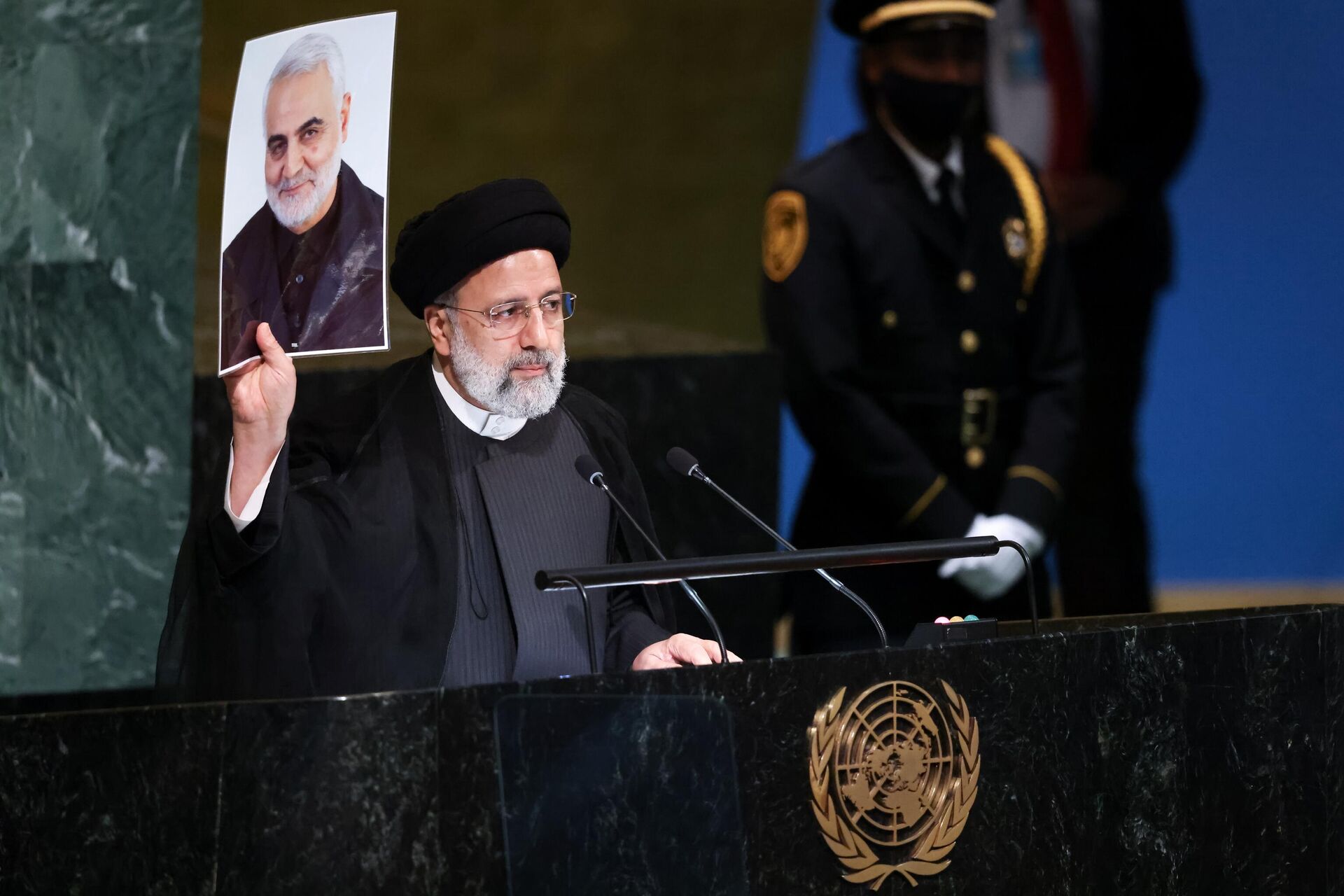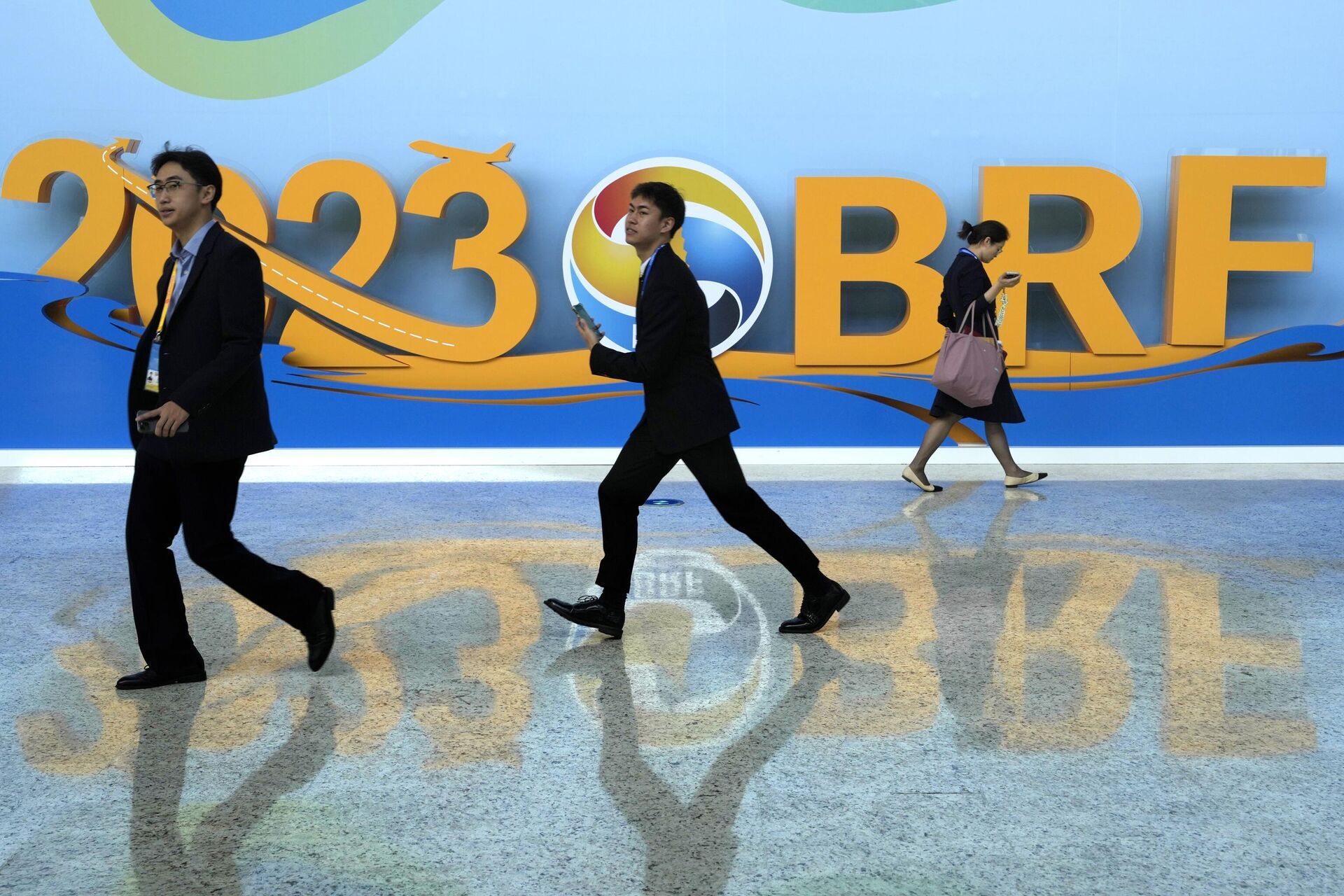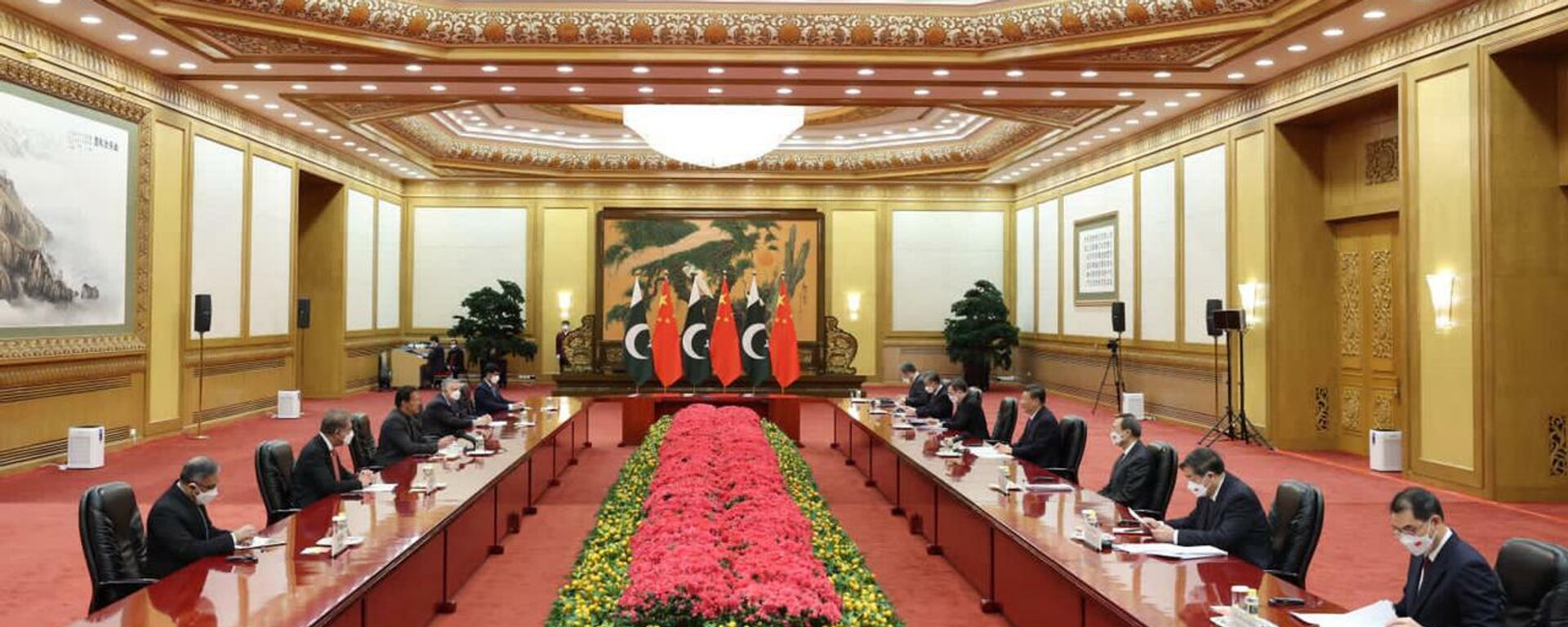https://sputniknews.in/20240120/is-iran-pakistan-escalation-part-of-us-plan-to-weaken-china-6275817.html
Is Iran-Pakistan Escalation Part of US Plan to Weaken China?
Is Iran-Pakistan Escalation Part of US Plan to Weaken China?
Sputnik India
Tehran is a long-term antagonist of Israel and Western countries' actions in the Middle East. Pakistan aims to maintain neutrality but it is being isolated from its neighbors. Sputnik India looks at why Iran and Pakistan must have each other’s backs.
2024-01-20T20:33+0530
2024-01-20T20:33+0530
2024-01-21T15:56+0530
sputnik opinion
terrorism
imran khan
pakistan
iran
us
islamic revolutionary guard corps (irgc)
islamic revolution guards corps (irgc)
taliban
https://cdn1.img.sputniknews.in/img/07e8/01/14/6278950_0:123:3421:2047_1920x0_80_0_0_5ae33c820f8a955d9cde32b4648246c5.jpg
Recent events in the Middle East suggest that Iran is being provoked into a full-scale military action.In December, an Iranian military adviser, General Reza Mousavi of the Islamic Revolutionary Guard Corps (IRGC), was killed in Syria. It was the most serious targeted killing the region has seen since commander Qasem Suleimani was killed by a US drone strike in Baghdad in 2020. Right after the death of Mousavi, the US military struck Baghdad, killing Talib Al-Saidi, commander of the Shiite Harakat Hezbollah al-Nujaba Popular Militia Forces.Then, a terrorist attack in Iran’s Kerman on January 3 saw two explosions at the city’s cemetery during a funeral to mark the anniversary of Suleimani's assassination. Although members of the Islamic State terrorist organization claimed responsibility, the Middle Eastern public and authorities in Iran seem sure that Israel and its Western allies were behind it.Following these deadly attacks, the IRGC launched missile strikes on targets in Syria’s Idlib province as well as in the Iraqi Kurdistan capital of Erbil reportedly aimed at eradicating terrorist factions. This chain of events also led the IRGC to strike Pakistan's remote area of Sistan-Baluchistan earlier this week.The IRGC hit two bases purportedly belonging to a Baloch militant group, Jaish al-Adl, which allegedly carried out attacks on Iran's military personnel.Pakistan called these attacks a breach of its sovereignty and carried out a sequence of targeted operations on what it labels "terrorist hideouts" in Iran in response on Thursday, killing nine people, including women and children.Re-Orientation of Iran and Pakistan's RelationsThis escalation between Iran and Pakistan has shocked many political analysts. Some have gone as far as saying that there is a complex, sinister big game at play, orchestrated by a third party. According to Pakistani journalist and geopolitical analyst Moeed Pirzada, Pakistan is being strategically re-oriented by Western powers.He further argued that many foreign policy analysts are saying that Pakistan is being put into an "Indo-American imperial plan". According to Pirzada, organizations such as top international security agencies have the resources and connections to make various events happen on the ground in foreign countries. They topple governments by orchestrating coups and provoke countries into blunders that have high-stake implications. Efforts to Disrupt China's Belt and Road InitiativeSome months ago, a Pakistan Tehreek-e-Insaf leader from Swat, Murad Saeed, raised a point of "strategic reorientation of Pakistan" when he spoke about a sudden revival of the Taliban* in Pakistan. Saeed questioned how and why the Taliban has resurfaced after being dormant for many years in the country.In a conversation with Sputnik India, a former Pakistani high-ranking diplomat to the UAE who asked to remain anonymous, said, "Pakistan is a strategic asset for Washington through which it can try to disrupt China's Belt and Road Initiative that runs through Iran and Pakistan, as two countries play an important role in this multi-billion dollar project."The diplomat pointed out that Iran is already involved in military action in Lebanon, Syria, and Iraq, as well as in Israel, and Israel could be planning to expand its war into Iran, which it considers its deadliest enemy.The US has also historically relied on Pakistan as a logistical ally in its efforts in Afghanistan. The supply routes through Pakistan have been crucial to sustain US military operations in the landlocked nation, emphasizing the practical importance of the bilateral relationship. Moreover, Pakistan's location at the crossroads of South Asia, with open access to the Indian Ocean via the Arabian Sea, also places it in proximity to other key regional players, including India and Afghanistan. This geographical positioning makes Pakistan crucial to the US.Why Iran and Pakistan Must Stick TogetherPirazada believes that Iran and Pakistan are becoming "toys in third party's hands." Similar sentiment was shared by a former three-star ranking military official in Pakistan's Armed Forces, Hassan Zulfiqar, who told Sputnik India that the Iran-Pakistan strikes are "most unfortunate."
https://sputniknews.in/20240118/why-china-wants-to-mediate-between-iran--pakistan-6247359.html
pakistan
iran
us
Sputnik India
feedback.hindi@sputniknews.com
+74956456601
MIA „Rossiya Segodnya“
2024
Aneela Rashid
https://cdn1.img.sputniknews.in/img/07e6/0c/0d/74548_0:0:485:484_100x100_80_0_0_821526e967ae85d041e2d30ee34fa1de.jpg
Aneela Rashid
https://cdn1.img.sputniknews.in/img/07e6/0c/0d/74548_0:0:485:484_100x100_80_0_0_821526e967ae85d041e2d30ee34fa1de.jpg
News
en_IN
Sputnik India
feedback.hindi@sputniknews.com
+74956456601
MIA „Rossiya Segodnya“
Sputnik India
feedback.hindi@sputniknews.com
+74956456601
MIA „Rossiya Segodnya“
Aneela Rashid
https://cdn1.img.sputniknews.in/img/07e6/0c/0d/74548_0:0:485:484_100x100_80_0_0_821526e967ae85d041e2d30ee34fa1de.jpg
us and middle east, pakistan-iran
us and middle east, pakistan-iran
Is Iran-Pakistan Escalation Part of US Plan to Weaken China?
20:33 20.01.2024 (Updated: 15:56 21.01.2024) Tehran is a long-term antagonist of Israel and Western countries' actions in the Middle East. Pakistan aims to maintain neutrality but it is being isolated from its neighbors. Sputnik India looks at why Iran and Pakistan must have each other’s backs.
Recent events in the Middle East suggest that Iran is being provoked into a full-scale military action.
In December, an Iranian military adviser, General Reza Mousavi of the Islamic Revolutionary Guard Corps (IRGC), was killed in Syria. It was the most serious targeted killing the region has seen since commander Qasem Suleimani was killed by a US drone strike in Baghdad in 2020.
Right after the death of Mousavi, the US military struck Baghdad, killing Talib Al-Saidi, commander of the Shiite Harakat Hezbollah al-Nujaba Popular Militia Forces.
Then, a
terrorist attack in Iran’s Kerman on January 3 saw two explosions at the city’s cemetery during a funeral to mark the anniversary of Suleimani's assassination. Although members of the Islamic State terrorist organization claimed responsibility, the Middle Eastern public and authorities in Iran seem sure that Israel and its Western allies were behind it.
Following these deadly attacks, the IRGC launched missile strikes on targets in Syria’s Idlib province as well as in the Iraqi Kurdistan capital of Erbil reportedly aimed at eradicating terrorist factions. This chain of events also led the IRGC to strike Pakistan's remote area of Sistan-Baluchistan earlier this week.
The IRGC hit two bases purportedly belonging to a Baloch militant group, Jaish al-Adl, which allegedly carried out attacks on Iran's military personnel.
Pakistan called these attacks a breach of its sovereignty and carried out a sequence of targeted operations on what it labels "terrorist hideouts" in Iran in response on Thursday, killing nine people, including women and children.
Re-Orientation of Iran and Pakistan's Relations
This escalation between Iran and Pakistan has shocked many political analysts. Some have gone as far as saying that there is a complex, sinister big game at play, orchestrated by a third party.
According to Pakistani journalist and geopolitical analyst Moeed Pirzada, Pakistan is being strategically re-oriented by Western powers.
“If you look at Pakistan's situation right now you can see that the country doesn't have good relations with its eastern neighbor India. There is also rising tension with its other neighbor Afghanistan and now the relations with its eastern neighbor Iran have also soured,” the analyst said.
He further argued that many foreign policy analysts are saying that Pakistan is being put into an "Indo-American imperial plan".
According to Pirzada, organizations such as top international security agencies have the resources and connections to make various events happen on the ground in foreign countries. They topple governments by orchestrating coups and provoke countries into blunders that have high-stake implications.
"The top American publications were quick to report about Pakistan-Iran strikes and how the US will support Pakistan in this situation. These US publications rarely report about Pakistan and all of a sudden they want to support Pakistan, why? How come they want to support it now?” the analyst remarked.
Efforts to Disrupt China's Belt and Road Initiative
Some months ago, a Pakistan Tehreek-e-Insaf leader from Swat, Murad Saeed, raised a point of "strategic reorientation of Pakistan" when he spoke about a sudden revival of the Taliban* in Pakistan. Saeed questioned how and why the Taliban has resurfaced after being dormant for many years in the country.
In a conversation with Sputnik India, a former Pakistani high-ranking diplomat to the UAE who asked to remain anonymous, said, "Pakistan is a strategic asset for Washington through which it can try to disrupt China's Belt and Road Initiative that runs through Iran and Pakistan, as two countries play an important role in this multi-billion dollar project."
The diplomat pointed out that Iran is already involved in military action in Lebanon, Syria, and Iraq, as well as in Israel, and Israel could be planning to expand its war into Iran, which it considers its deadliest enemy.
"In all this geopolitical chaos China's projects are going to suffer, which plays to the US benefit. So keeping Pakistan unstable means that Chinese projects will suffer in the country as well. Rising terrorism has already put a damper on the China-Pakistan Economic Corridor with militants attacking Chinese nationals. So tensions in Balochistan with Iran add to this unfortunate chaos," the diplomat said.
The US has also historically relied on Pakistan as a logistical ally in its efforts in Afghanistan. The supply routes through Pakistan have been crucial to sustain US military operations in the landlocked nation, emphasizing the practical importance of the bilateral relationship.
Moreover, Pakistan's location at the crossroads of South Asia, with open access to the Indian Ocean via the Arabian Sea, also places it in proximity to other key regional players, including India and Afghanistan. This geographical positioning makes Pakistan crucial to the US.
Why Iran and Pakistan Must Stick Together
Pirazada believes that Iran and Pakistan are becoming "toys in third party's hands."
“Iran made a blunder by striking Pakistan and Pakistan retaliated thinking that it doesn't want to seem weak, that it has to show military force, but I think a diplomatic warning by Pakistan would have been enough because both nations need to show restraint, as something is being cooked up by Western powers. It seems that the US and its allies are out to get Iran, and if that happens it will have serious ramifications for the whole region, including Pakistan," the analyst said.
Similar sentiment was shared by a former three-star ranking military official in Pakistan's Armed Forces, Hassan Zulfiqar, who told Sputnik India that the Iran-Pakistan strikes are "most unfortunate."
"The obvious beneficiary is the US and it confirms the allegation by former Prime Minister Imran Khan who said that the regime change in Pakistan in 2022 was a conspiracy by the US. The current setup is under CIA control, they allegedly guided Pakistan to conduct the strike on Iran, so the only thing that remains a mystery to me is why Iran initiated the attack? Was there a green signal from within the IRGC? Is it possible that it has been infiltrated by some pro-Western elements to antagonize Pakistan and initiate a new conflict in the region? It is definitely all quite sinister," the official said.





